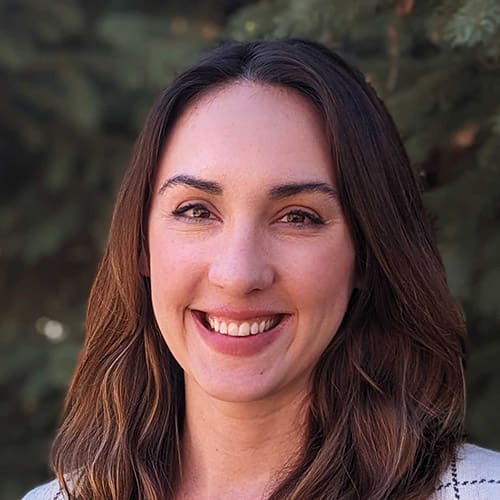
What Does It Mean to Die of Old Age or Natural Causes?

You’ve likely heard someone say that a person has “died of old age” or “died of natural causes.” But what exactly do those phrases mean? Contrary to popular usage, people don’t die of old age. Instead, as people age they become more vulnerable to disease and health conditions that a younger person may be able to survive. “Natural causes,” on the other hand, typically means no obvious cause of death was identified for an elderly person’s death, even though it was likely caused by a common condition, such as a stroke, heart attack, or blood clot.
Let our care assessment guide you
Our free tool provides options, advice, and next steps based on your unique situation.
Key Takeaways
- Aging is a risk factor that makes diseases and injuries more dangerous. As people age, they’re more likely to die from disease or injury because of natural changes in their bodies.
- “Old age” is not a cause of death. In 2022, “old age” was removed from official documents as a cause of death and replaced with “aging-associated biological decline in intrinsic capacity.”
- Heart disease, cancer, and stroke are responsible for most deaths among seniors. Since 2002, about 61% of the deaths of people over 65 in the U.S. have been caused by those three conditions.
- Using “old age” as a cause of death can lead to ageism. Understanding why people are more physically vulnerable as they age can prevent ageism, like forced retirement.
How aging affects the body
Besides superficial changes like laugh lines and gray hair, the natural aging process does cause some changes that make a person more vulnerable. Natural aging causes:
- Loss of muscle mass. A decline in muscle mass is linked to an increased risk of type 2 diabetes, difficulty managing weight, heart disease, and osteoporosis. People with lower muscle mass are more likely to become seriously injured after an accident.[02]
- Senescent cell accumulation. This causes a constant state of low-level inflammation and prevents the body from regenerating new tissue cells.[03]
- Shortened telomeres. Telomeres protect DNA from damage, and older people are more likely to have shorter telomeres. This means their DNA may experience more damage, which leads to general frailty.[04]
- Hormonal changes. A decrease or increase in certain hormones as people age cause a host of issues. Among them are an increase in insulin resistance, a decrease in bone density, and a decline in metabolism.[05]
People don’t die of old age. Instead, as people age they become more vulnerable to disease and health conditions that a younger person may be able to survive.
These unavoidable changes in the body lower a person’s intrinsic capacity, which makes them more likely to have a serious problem if they get a disease.
For example, a 95-year-old woman experiences hormonal changes that lower her bone density and cause a loss of muscle mass. If she slips on an icy driveway, she’s more likely to break a hip than a 45-year-old with healthy bones and strong muscles. While in the hospital, she may catch a disease like pneumonia. Because she’s already in a weakened state, she’s less likely to survive.
Looking for signs that an elderly loved one needs more support can help prevent these accidents in the first place.
Old age, frailty, and intrinsic capacity
Aging causes a person’s body to undergo some serious changes, and any of these changes can contribute to a person’s eventual death. Scientists use the terms frailty and intrinsic capacity to describe these side effects of aging.[05] A person’s intrinsic capacity is the reserve of physical and mental abilities to ward off infections, fight diseases, and take care of themselves.
As a person ages, their intrinsic capacity lowers and they become more frail. Intrinsic capacity and frailty aren’t necessarily correlated to age, either. A healthy 80-year-old is less frail than a 25-year-old with cancer. However, most elderly people are more frail than most younger people.
Why to avoid saying a person “died of old age”
Saying a person “died of old age” can contribute to stigmas around caring for the elderly. Describing a cause of death is always complicated regardless of age, which is why most physicians and coroners often list more than one cause of death on a death certificate.
Problems like ageism, forced retirement, and a lack of geriatric medical care can be prevented with a better understanding of the aging process and how death fits into it. Quality of life in the senior years, too, is becoming more and more important as the number of people over 65 rises in the United States and people continue to live longer than they ever have.
It’s also outdated and inaccurate to say that a person “died of old age.”
People began officially classifying causes of death in the 18th century.[06] In 1948, the World Health Organization began updating the International Classification of Diseases, which is now in its 11th edition.
In the American version (the ICD-10-CM), “old age” is not listed as a possible cause of death, but it was listed in the edition used in the United Kingdom — that is, until the death of Queen Elizabeth II in 2022, when “old age” was officially removed as a legitimate cause of death. It was replaced with “aging-associated biological decline in intrinsic capacity.”[07]
“Natural causes” refers to common health conditions
The term “natural causes” is another commonly used phrase to describe an elderly person’s death when no obvious cause is identified. When an elderly person dies peacefully in their sleep, many people say “they died of natural causes.”
However, an older person dying in their sleep is likely due to a stroke, heart attack, or blood clot — all of which can be fatal, because elderly people have fewer physical reserves to survive.
The term “natural causes” comes from the five manners of death used by investigators, coroners, and law enforcement.[08] The five manners of death include:
- Natural. A death is caused by disease or natural processes, such as cancer or a heart attack.
- Accidental. The most common example of an accidental death is a traffic accident.
- Suicide. A person takes their own life.
- Homicide. A person takes another person’s life.
- Undetermined. There not enough evidence to determine the cause of death.
Most deaths in people over 65 are indeed “natural deaths,” because they’re caused by natural factors like disease. But saying someone died of “natural causes” or “old age” isn’t specific and can mislead people into thinking that age itself will cause death.

Let our care assessment guide you
Our free tool provides options, advice, and next steps based on your unique situation.
Most common causes of death for people over 65
According to the Centers for Disease Control and Prevention, since 2002 the top causes of death for people over 65 are:[09]
- Heart disease
- Cancer
- Stroke
These three conditions make up about 61% of the deaths of people over 65 in the United States.[09] Cancer related to tobacco use remains the top preventable cause of death for people over 65. Influenza and pneumonia also continue to cause deaths in the elderly at a higher rate than any other age group, despite access to vaccines to prevent these diseases.
Heart disease, cancer, and stroke make up about 61% of deaths for people over 65 in the United States.
The top causes of death for the elderly have changed dramatically over the last century. In 1900, the leading causes of death for people over 65 were all bacterial or viral diseases:[09]
- Influenza and pneumonia
- Tuberculosis
- Diarrhea and enteritis
Read more: What to Say to Someone Who Is Grieving
Death and dementia
Unlike old age, Alzheimer’s disease or other dementias are listed as an official cause of death in the ICD-CM-10.[10], and they’re now listed as the fifth most common cause of death in the United States.
You likely know someone who has died from dementia, and if so, you know these deaths are often slow and complex. Usually, a person with severe dementia dies from “self-care deficits.”[11] This means that a person has stopped eating or drinking and eventually fades away.
Because these deaths are so slow, they can be very emotionally draining for caregivers and loved ones. If you’re caring for someone with late-stage dementia and need support, consider looking into memory care facilities with hospice.
Volpi, E., Nazemi. R., & Fujita, S. (2010, Jan 12). Muscle tissue changes with aging. Curr Opin Clin Nutr Metab Care.
Sinha Dutta, D. (2022, May 4). The role of senescent cells in disease. News Medical & Life Sciences.
Shammas, M. (2012, June 8). Telomeres, lifestyle, cancer, and aging. Curr Opin Clin Nutr Metab Care.
Aging changes in hormone production. (2022, July 21). MedlinePlus.
Belloni, G. & Cesari, M. (2019, June,18). Frailty and intrinsic capacity: two distinct but related constructs. Front Med (Lausanne).
Centers for Disease Control and Prevention. (1993, September). Historical development of cause of death statistics.
Szasz, G. (2022, September 15). “Old age” no longer a diagnosis as a cause of death. BC Medical Journal.
Snohomish County Washington. Cause and manner of death.
Centers for Disease Control and Prevention. (2005, October). Trends in causes of death among older persons in the United States.
National Center for Health Statistics. ICD-CM-10.
Kafetz, K. (2022, November). What happens when elderly people die?Journal of the Royal Society of Medicine.
Senior living options in all states
The information contained on this page is for informational purposes only and is not intended to constitute medical, legal or financial advice or create a professional relationship between A Place for Mom and the reader. Always seek the advice of your health care provider, attorney or financial advisor with respect to any particular matter, and do not act or refrain from acting on the basis of anything you have read on this site. Links to third-party websites are only for the convenience of the reader; A Place for Mom does not endorse the contents of the third-party sites.
Make the best senior care decision
Make the best senior care decision